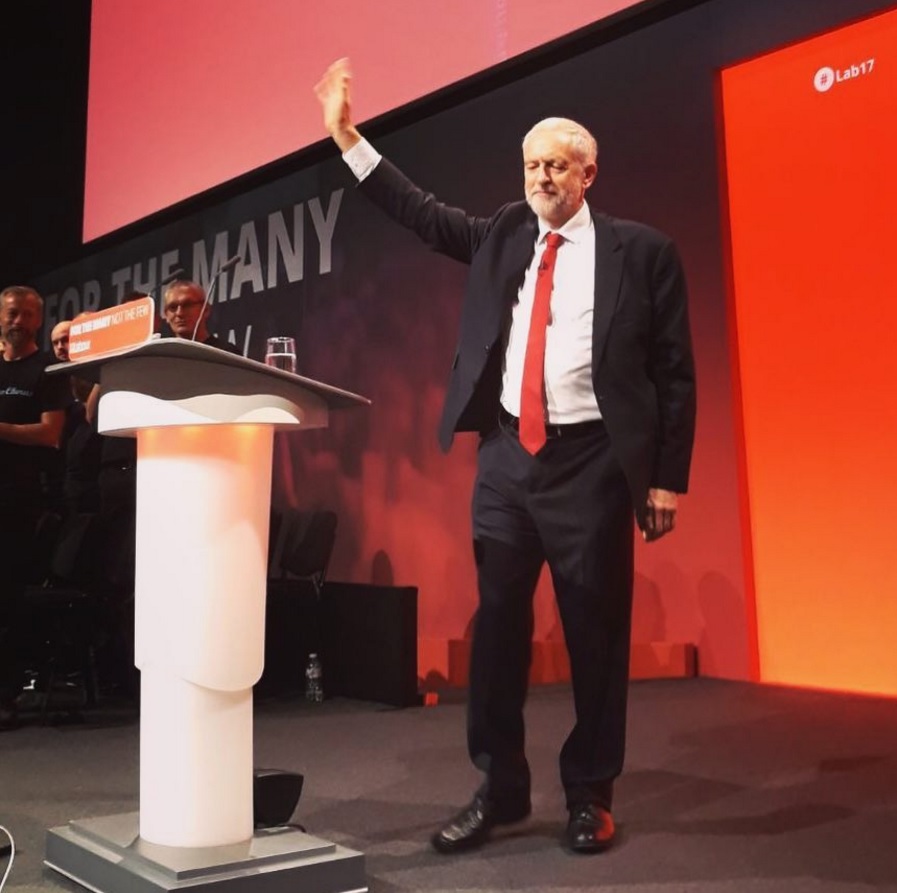Josh Andrew, 3rd year BSc Politics student at Canterbury Christ Church University, reports his impressions from the Labour party conference in Brighton.
This year’s Labour party’s annual conference was the biggest the party had ever held. Media coverage of policies and a plethora of other issues was widespread, from BBC reporter Laura Kuenssburg’s bodyguard to the restrictions on debating Brexit. In my observation, three aspects particularly stuck out and are worth discussing further.
First, while the majority of press coverage focussed on the party leadership only, it is worth looking at the party itself and its membership – particularly at the relationship between Jeremy Corbyn, his cabinet, and the rest of the party. Within most of the party, Corbyn is a cult hero – especially after the 2017 general election result, which turned from a Labour decimation to the Conservative party losing its majority, all in two months. The chants and buzz in the air whenever there is a mention or appearance from Corbyn only emphasised this and there was a real feeling that Labour could potentially form the next government. The enthusiasm spread to other key figures in his shadow cabinet, such as John McDonnell, whose speech gained media attention with the announcement of further investment for the north and transport, with a huge cheer for his reaffirmation of nationalisation, with the quote “we’re taking them back!” This created a presidential attitude within some parts of the party:
Corbyn now carries the party as an essential part of its electability, the complete opposite from before the 2017 election.
An equally striking aspect of conference was the media coverage, which focused not on policy but on two other issues: the alleged anti-Semitism within some areas of the party, and the restriction on debating Brexit.
The Brexit debate restriction was a controversial decision for many members and MPs (Clive for instance Lewis spoke passionately about this at a fringe event). Many members also spoke of their frustrations about this at conference. The curtailing of a full Brexit debate was important as it is one such a difficult policy issue for Labour as the main opposition party. However, the restriction was understandable, as most fringe events would develop into a debate on Brexit policy, which is a polarizing issue in the Labour party, especially on the single market and freedom of movement.
The issue of anti-Semitism within the Labour party raised its head again, with reports of holocaust denial being debated by a controversial author, and the party’s board for approving panels for fringe events being called into question. This put pressure on Corbyn to come out and speak on the issue, especially after Wes Streeting, a Labour party MP, spoke on the matter, claiming Corbyn was not an anti-Semite, but was involved in running an ‘ostrich style’ leadership on the issue. This brought a sad and contentious note to party conference, coinciding with the vote on changes to the party’s definition of anti-Semitism, in which many proposals from different CLP’s were rejected due to non-specific wording. Everything I have seen and heard at conference and in the news – from the opinions of MP’s, members and the change of definition – seems to have only reinforced the party’s commitment to fighting anti-Semitism inside and outside of its membership.
Overall, in the year ahead Labour, Corbyn and his shadow cabinet need to be committed to being ready for government, and just as importantly, ready for another election. They appear willing to make required changes and send out the right messages to project a clear image of the Labour party, a party that has solved its own internal issues and is preparing to solve those of the UK.
 Politics
Politics Anna Vanaga
Anna Vanaga 790
790


